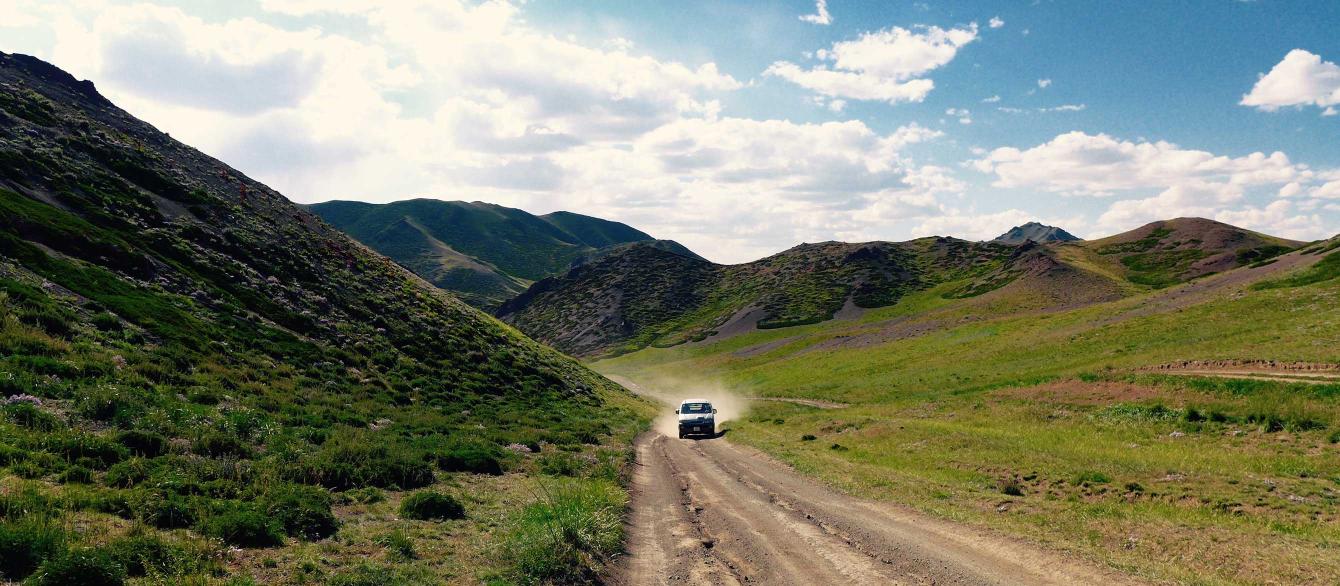Since 1947, graduates of this interdisciplinary master’s program have gone on to be distinguished scholars, diplomats, government officials, journalists, and experts on the Soviet Union and its successor states. Their firm grasp of the historical, political, economic, and cultural forces that shape the region, along with superb research, analytical, and language skills, opens the door to many careers that require deep expertise on the region, including doctoral-level study.
As a concurrent degree student in the REECA master’s program, you'll be challenged to delve deeper into the study of this critical world region than is possible at the bachelor's level. You'll be part of the Davis Center’s intellectual community, which brings together scholars and graduate students from around Harvard and around the world who share your interest in this geographic region. On a pragmatic level, the master’s degree has increasingly become the price of entry for certain careers. If you plan to enter public service, you may be able to start your career immediately after you graduate, and at a higher pay grade than with the bachelor’s alone.
Eligibility
To apply to the REECA concurrent degree program, you need to meet these prerequisites by the end of your 5th term of study:
- Demonstrate a high level of proficiency in Russian or another regularly-offered language of the region. For Russian, this means passing the REECA Qualifying Exam, or earning grades of A- or A in two or more upper-level language classes (Russian 102, 111, 112, 113, 114, 115)
- Demonstrate the ability to perform at the graduate level through prior coursework on the region
- Identify a preliminary thesis advisor and topic, to be refined during spring of 3rd year (after admission to the program)
- Be prepared to conduct master’s thesis research during the summer between 3rd and 4th years
Important: REECA concurrent master's students who also wish to pursue an undergraduate honors degree must write two separate theses, one for the bachelor's and one for the master's.
Requirements
The concurrent degree requires a total of 32 credits, distributed as follows:
- Six approved core REECA regional courses, taken for graduate credit (24 credits)
- Two courses (8 credits) devoted to the master’s thesis: RSRA 298A, 298B, 299A, and 299B, or the equivalent
- Option 1: take the RSRA 298A-298B sequence in your 3rd year, pending admission to the program; this will prepare you for thesis research during the summer after your 3rd year
- Option 2: develop your thesis proposal and summer research plan through supervised research or a departmental thesis tutorial, ideally while concurrently auditing RSRA 298a and 298b
Recommended Timeline
Year 1
- Study a regional language and plan to complete the equivalent of 3 years by the end of your 2nd year of college; this may require summer study
- Meet with Donna Griesenbeck for exploratory advising
- Meet with one or more REECA professors for exploratory advising
- Take a REECA area studies class. Important: courses taken in the first year of college are typically not eligible for REECA concurrent degree credit.
Year 2
- Continue studying your chosen regional language, if required
- Meet with one or more REECA professors for exploratory advising
- Take one or two REECA area studies classes. Consult with instructor and with Donna Griesenbeck about graduate credit.
- Complete a concurrent degree planning worksheet (download from the OUE website)
Year 3
- Prepare for the thesis by taking RSRA 298a and 298b or, with approval from the REECA program, a thesis tutorial in your concentration
- Take methodology course(s) if required for your thesis
- Apply to GSAS for admission to REECA (select the AB/AM degree option from the dropdown)
- Learn whether you’ve been admitted early in spring term
- Submit a petition to allocate courses taken toward the master’s degree (download from the OUE website)
Summer between year 3 and year 4
- Thesis research
Year 4
- Take RSRA 299a and 299b, the REECA thesis sequence
- Take remaining core REECA coursework
Selected REECA Courses
The courses listed below were offered between 2018 and 2021 and provide a glimpse of what is possible in the REECA program. If taken for graduate credit, any of these courses could count towards the master’s degree. To browse current course offerings, enter “reeca” into the search box on my.harvard. Note: the search results also include relevant language courses, which do not count towards the six required regional courses. Please note that this is not an exhaustive list, so please reach out to the REECA program if you have questions about a specific course.
- ECON 1025. From Gorbachev to Putin: the Economics and Politics of the Russian Transition
- GOV 94DT. The Authoritarian Turn in Central and Eastern Europe: What Can Be Done About It?
- GOV 1199. Negotiating Post-Soviet Conflict: The Geopolitics of Eastern Europe and the Caucasus
- GOV 1203. Capitalism and Democracy in Central and Eastern Europe
- GOV 1243. Russian Politics in Transition
- GOV 1249. Authoritarianism
- GOV 1783. Central Asia in Global Politics
- GOV 2213. Comparative Politics of Post-Socialism
- GOV 2218. Topics in Russian Politics
- HIST 82F. The Origins of the Cold War: The Yalta Conference (1945)
- HIST 1270. Frontiers of Europe: Ukraine Since 1500
- HIST 1281. The End of Communism
- HIST 1284. Revolutionary Eurasia
- HIST 1947. The Imperial Map: Geographic Information in the Age of Empire
- HIST 1980. The Soviet Empire, 1917-1991
- HIST 1981. The End of the Russian Empire
- HIST 1982. The Nuclear Age: An International History
- HIST 2271. The Soviet Union: Proseminar
- HIST 2272. The Soviet Union: Seminar
- HIST 2277. Eastern Europe: Peoples and Empires: Proseminar
- SLAV 252. Russian Intellectual History
- SLAV 260. Russia and Race
- SLAV 287. Politics and the Novel
Other Options to Explore




